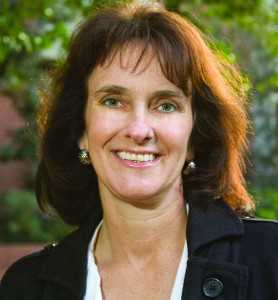Elizabeth Mitcham Honored As Outstanding Horticulturist

Elizabeth Mitcham
Elizabeth Mitcham, a University of California (UC)-Davis scientist, was honored by the American Society for Horticultural Science (ASHS) as its Outstanding International Horticulturist for 2015.
She accepted the award in early August at the ASHS annual conference in New Orleans, LA. The award recognizes distinguished contributions to horticultural sciences for 10 years or more, with emphasis on international activities and impacts.
“I am humbled to have been selected for this award. I have found my international horticulture work very rewarding,” she said. “Hosting scientists and students from around the world in my research lab, training professionals from more than 40 countries in postharvest technology, and assisting the rural poor in developing economies to more successfully earn an income growing and marketing healthy fruits and vegetables has been incredibly rewarding.”
At UC-Davis, Mitcham is director of both the Horticulture Innovation Lab and Postharvest Technology Center programs. As director of the internationally recognized Postharvest Technology Center, she mentors professionals on how best to care for fruits and vegetables after harvest, to reduce food waste and improve food quality. She has hosted numerous foreign scientists and students in her lab at the UC-Davis Department of Plant Sciences, where her research focuses on the regulation of fruit ripening, understanding calcium deficiency disorders, and maintaining fruit quality after harvest.
The Horticulture Innovation Lab targets fruit and vegetable research in developing countries to reduce poverty and improve nutrition. Her leadership helps build international partnerships between scientists and develop technologies that meet the horticultural needs of smallholder farmers. The program is funded by the U.S. Agency for International Development as part of Feed the Future, the U.S. government’s global hunger and food security initiative.
“I’ve really become passionate about what horticulture can bring to reducing poverty and improving lives,” she said. “Meeting people who are now able to send their children to school or buy books — those one-on-one interactions are what really stick with me. It is so rewarding to be able to work in this field.”










